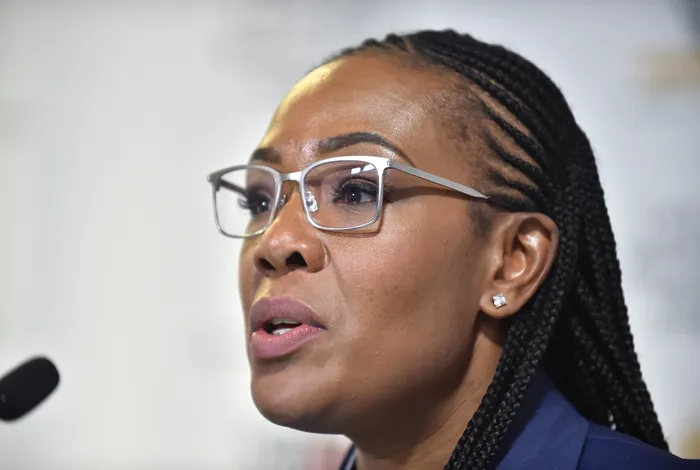Parliament hears warning against rising audit fees impacting local service delivery
PARLIAMENT

Auditor-General Tsakane Maluleke said whilst the increase in AGSA revenues was significant, there was also a regular increase in the number of auditees the office took on.
Image: Thobile Mathonsi / Independent Newspapers
The Accountant General has raised alarms over the increasing audit fees imposed on government entities and municipalities by the Auditor-General of South Africa (AGSA).
During discussions before Parliament’s Portfolio Committee on the Auditor-General (PCOAG) on Friday, Accountant General Shabeer Khan revealed a staggering 13% increase for the upcoming 2024/2025 financial year, alongside a 7.2% rise observed in the current year.
This escalation in costs raises serious concerns about its implications on critical service delivery across municipalities, particularly for smaller entities grappling with their constrained budgets.
Khan articulated his frustrations over the AGSA's apparent disregard for mandatory consultations with government and parliamentary bodies regarding these audit fees.
"Between 2023/2024 there has been an increase of around 13% and then between 2024/25 and the current financial year, there has been a 7.2% increase," Khan said.
"These increases in the AGSA revenue budget, these need to be recovered from the auditees. This is higher than the growth in the departmental budgets and obviously national, provincial and municipal budgets need to be constrained as they struggle to manage costs."
Khan's statements reflect a growing sentiment among auditees who have openly expressed concerns that soaring audit fees detract from their ability to deliver essential services to residents—an alarming trend noted particularly among smaller municipalities.
Khan said what was missing in the process for AGSA to improve was the requirement for consultation to take place as in the constrained fiscal environment, Treasury was responsible for ensuring that the audit fees were both reasonable and affordable, and that they did not inadvertently compromise service delivery.
"We asked the Auditor-General that once they determine the audit fees for all municipalities, before the start of the financial year, they should pass that data and information to the National Treasury team," Khan said.
"So the National Treasury in the review of those budgets and even before the councils can approve those budgets. The National Treasury can quite explicitly indicate that you're either under budgeted for the audit fees or you have not catered for it.
"And I think that's a key or an underlying reason why when they don't budget for audit fees, we then see down the line what has really emerged over the years, non-payment, delays in payment."
Auditor-General Tsakane Maluleke said whilst the increase in AGSA revenue was significant, there was also a regular increase in the number of auditees the office took on.
"So the analysis on the revenue changes must also take that into account. It's not just that we are increasing audit fees at every audit by 12%. It is indeed often about the fact that we've taken on more auditees," Maluleke said.
She said audit fees were engaged upon it auditees and were determined based on the risk profile, the audit programme, the matters to cover in the audit directive, the provisions on financial statements and performance information, the readiness of the auditees and other factors.
"It may well be that there is a particular appetite that we have not lived up to and we will certainly engage with the Accountant General to ensure that we meet his need for the nature of consultation he would like, and ultimately it's that we all want the same things," she said.
"We want certainty of how the audit fees are arrived at. We want certainty as to how all the auditees are going to meet their obligations to actually pay the audit fees across."
Maluleke said though there were some internal inefficiencies, the AGSA office had made major gains though there were limitations of the manual processes of the office and that of the auditees.
"We've been able to build cash because we needed to make sure that when we enter into these big investment projects that will make us more efficient and effective in the future, we have the cash resources available.
"It's because we are determined to make sure that when we start our investment program, we're not going to be irresponsible and end up having to delay it because we've not planned for the cash outflows."
BUSINESS REPORT